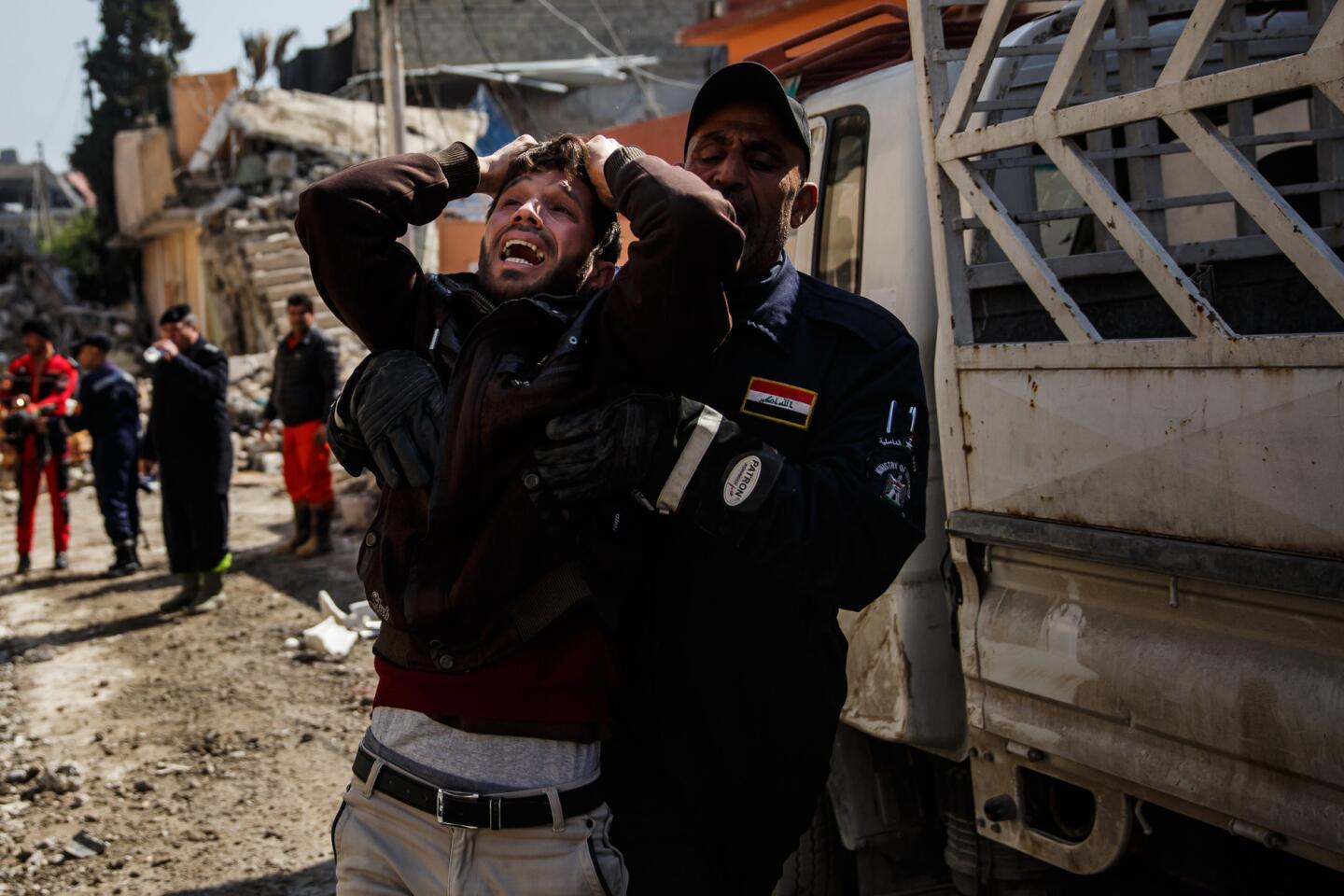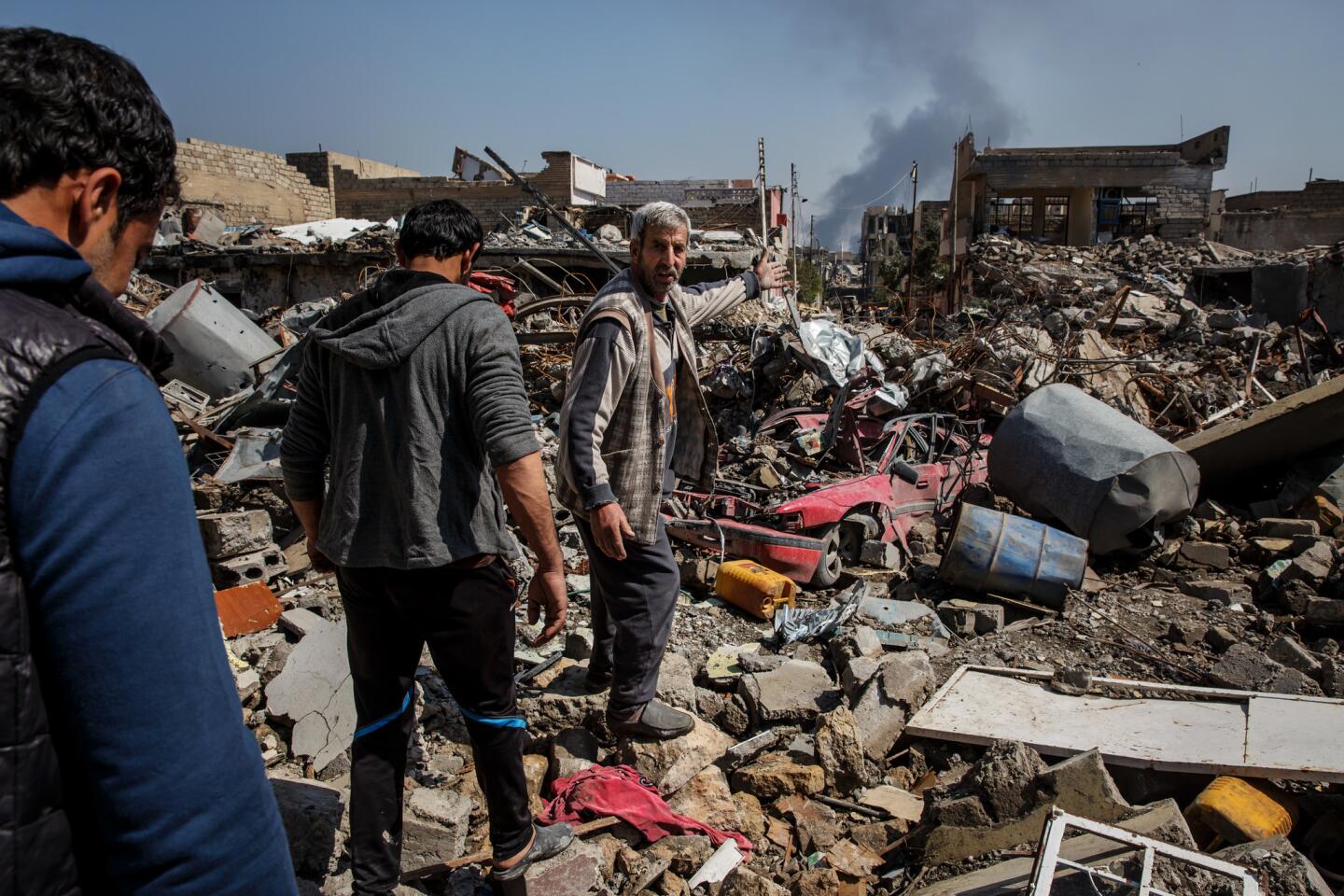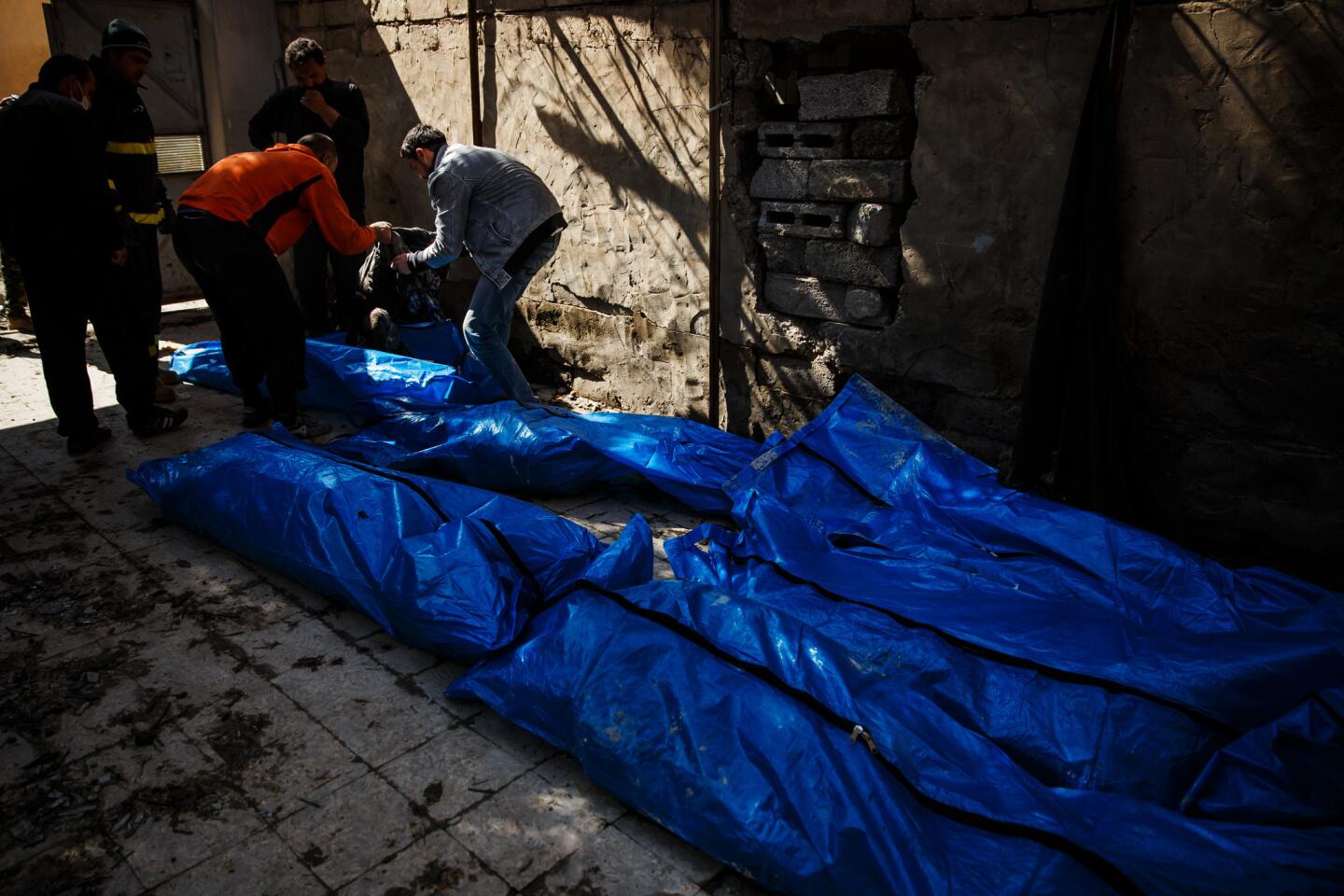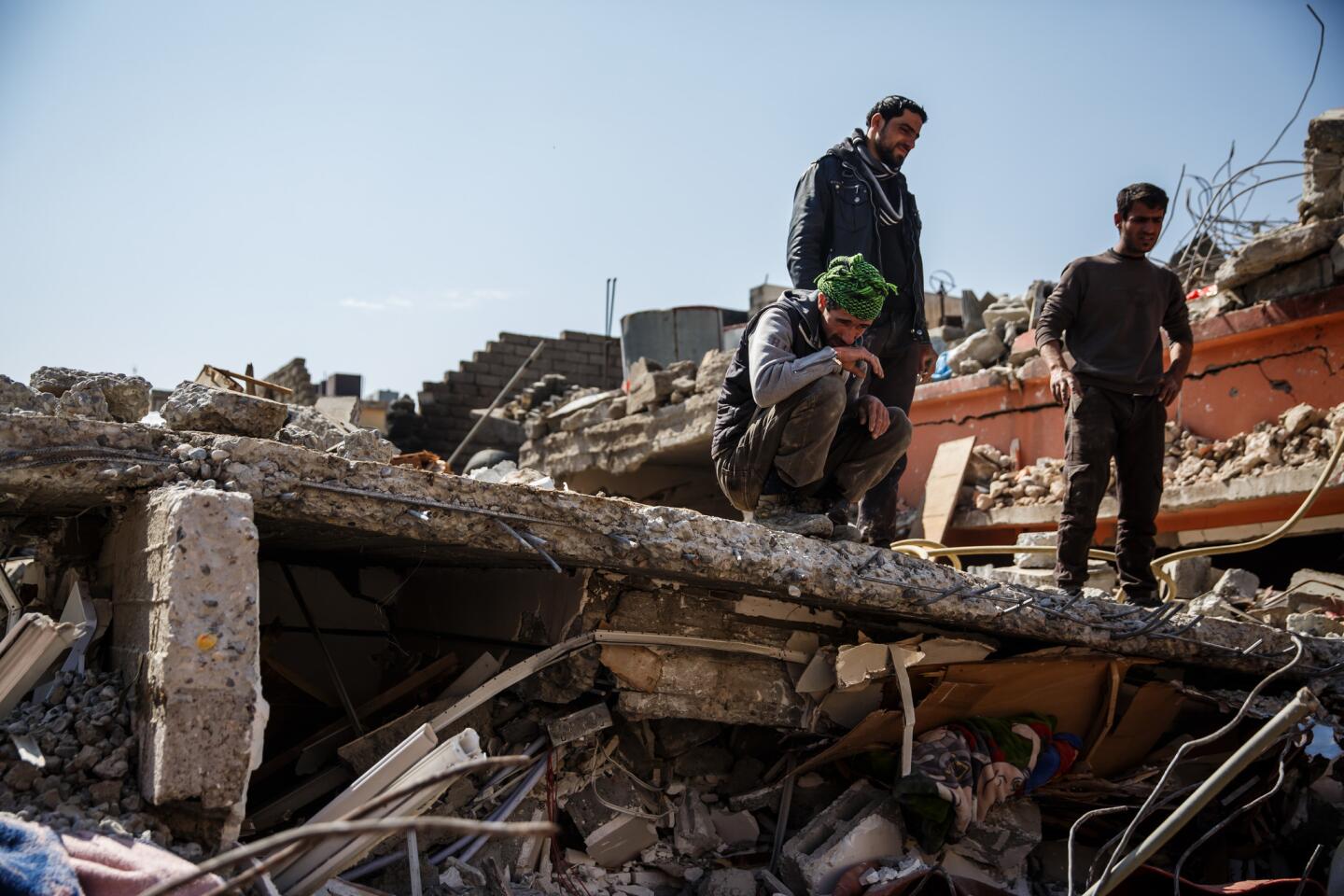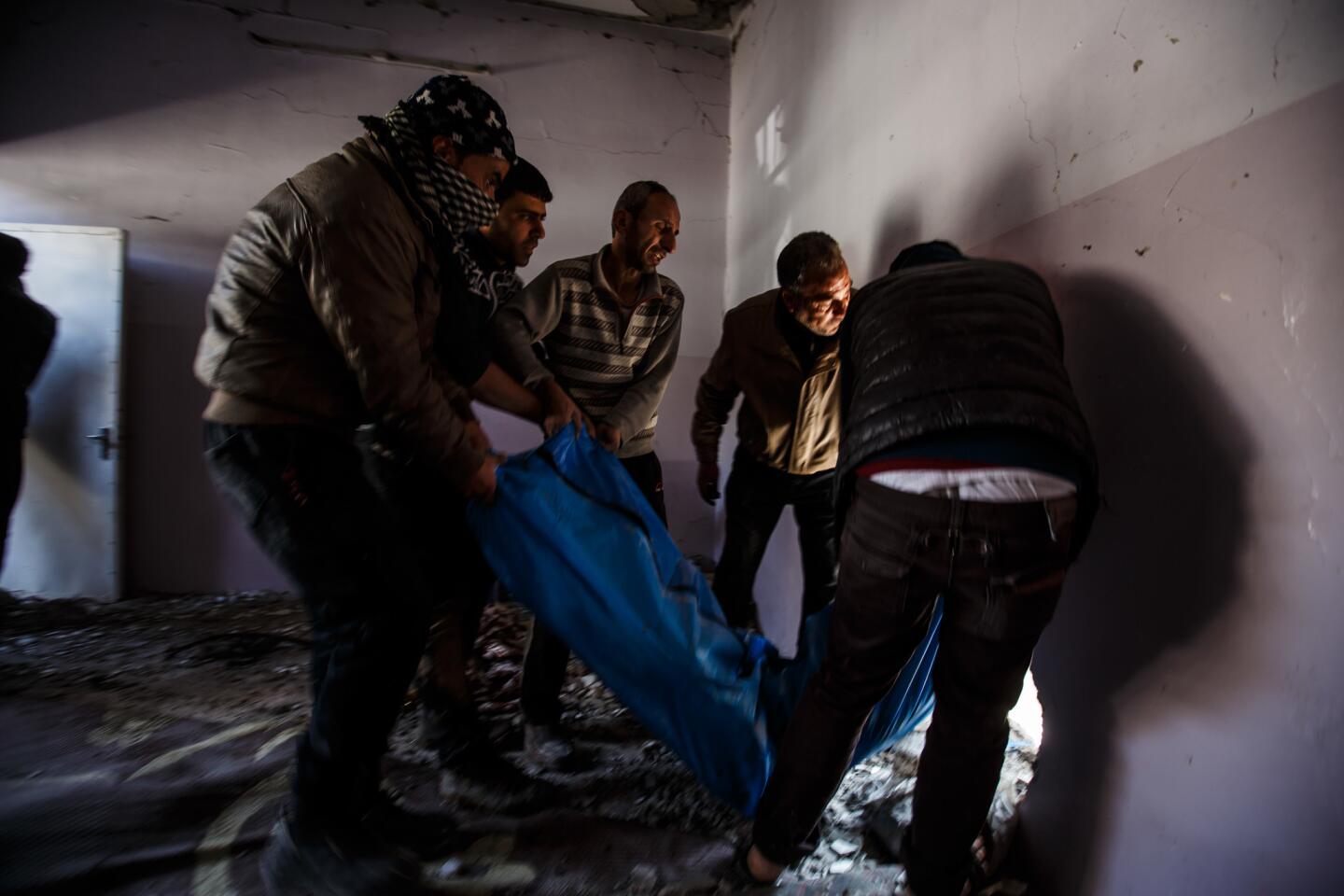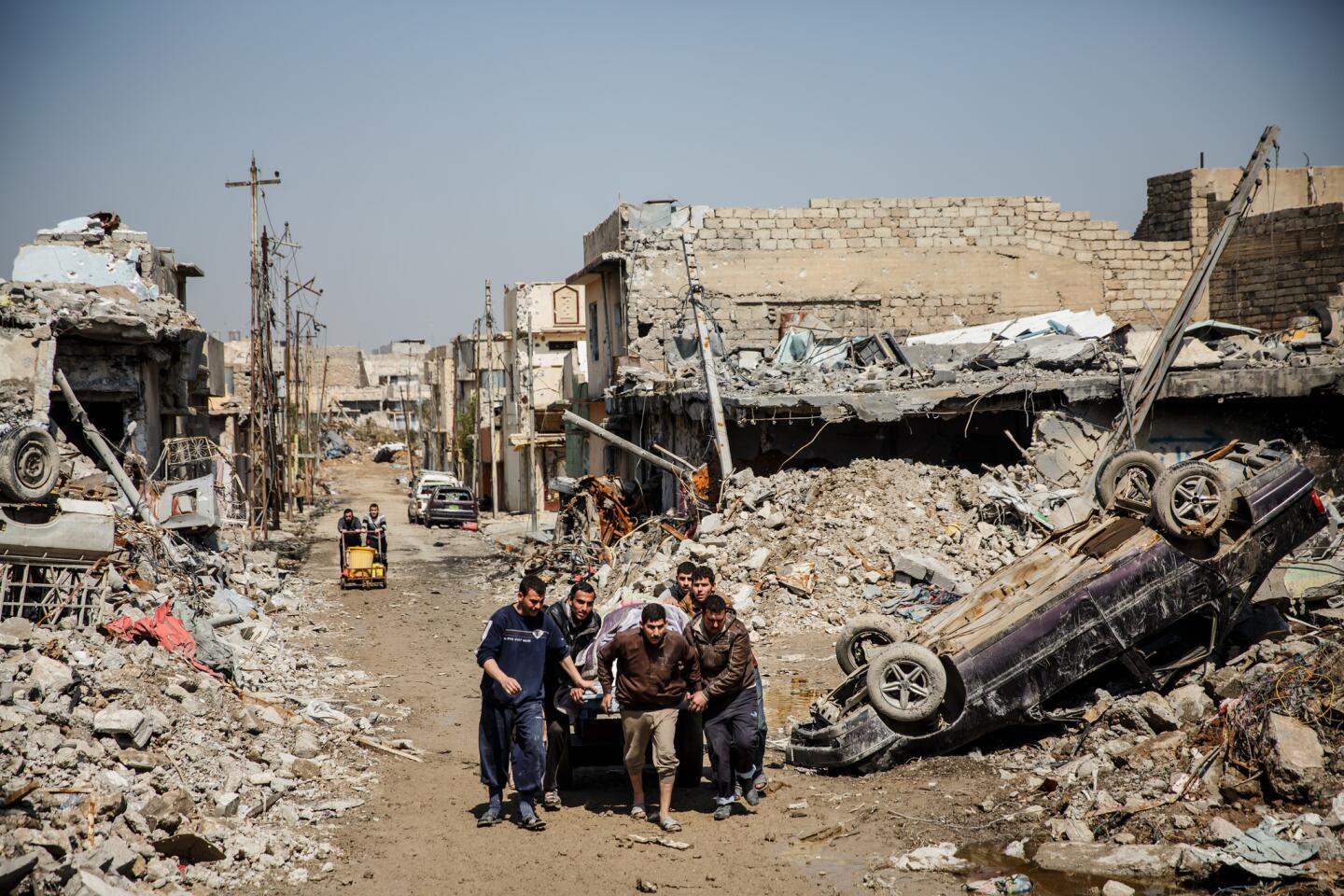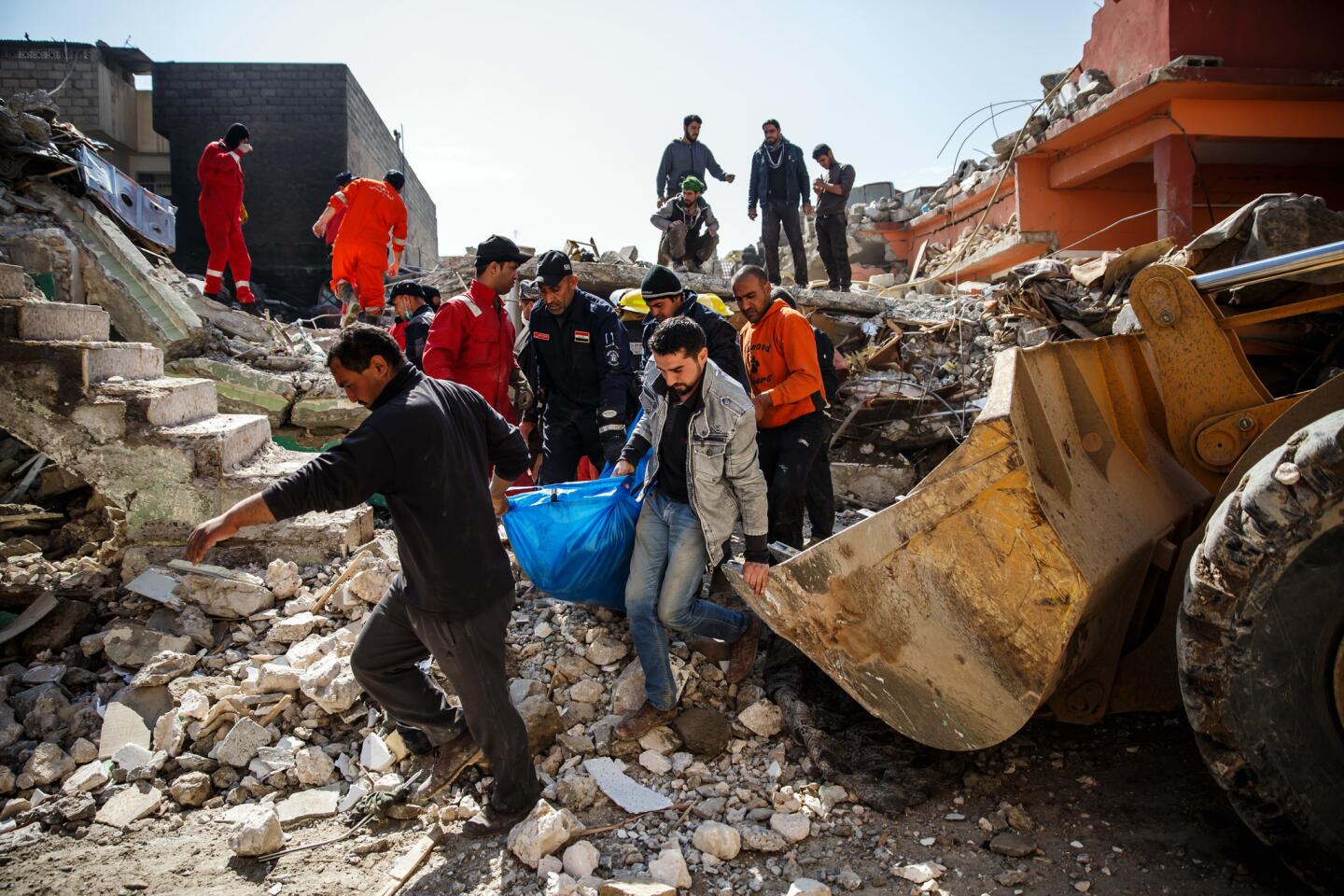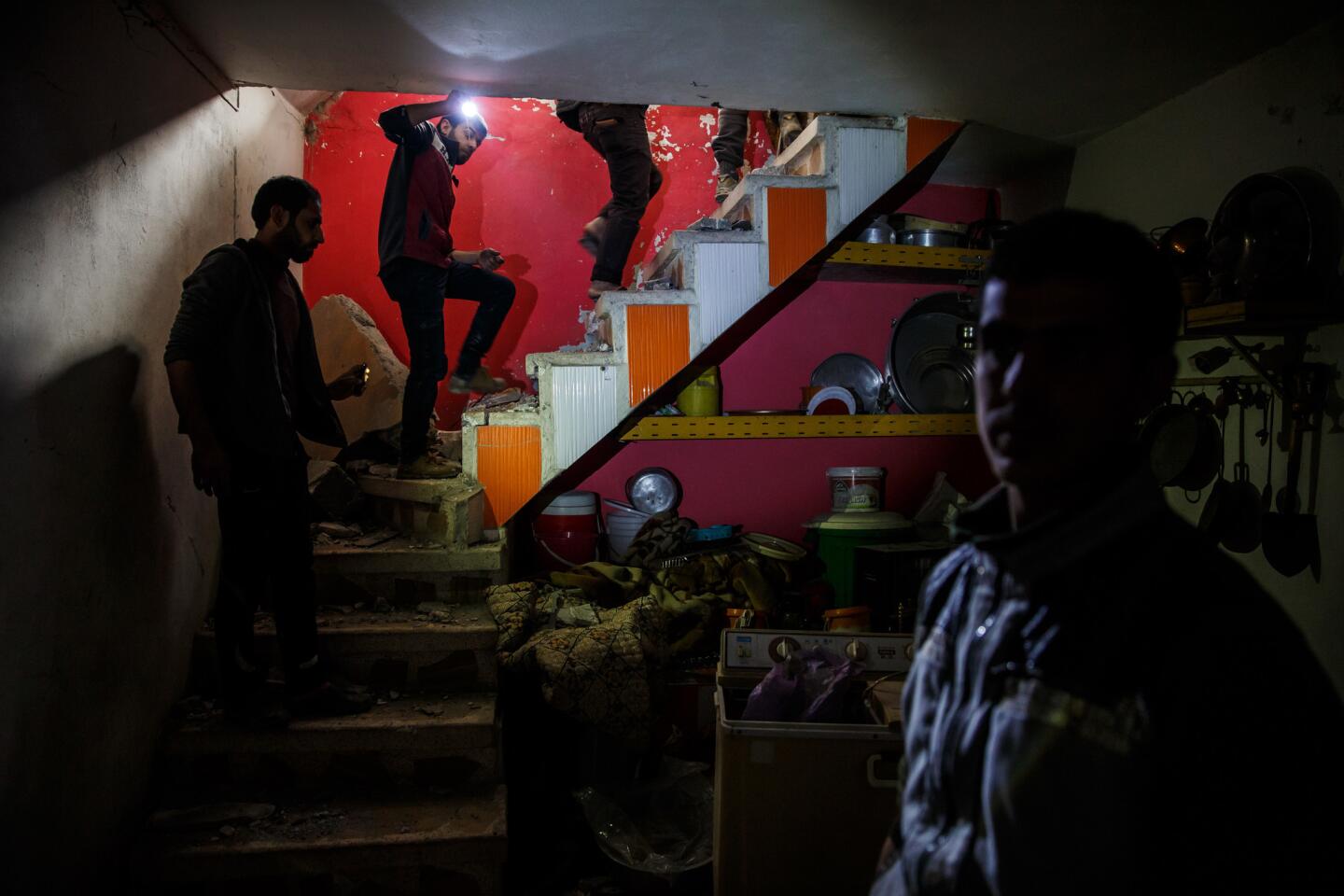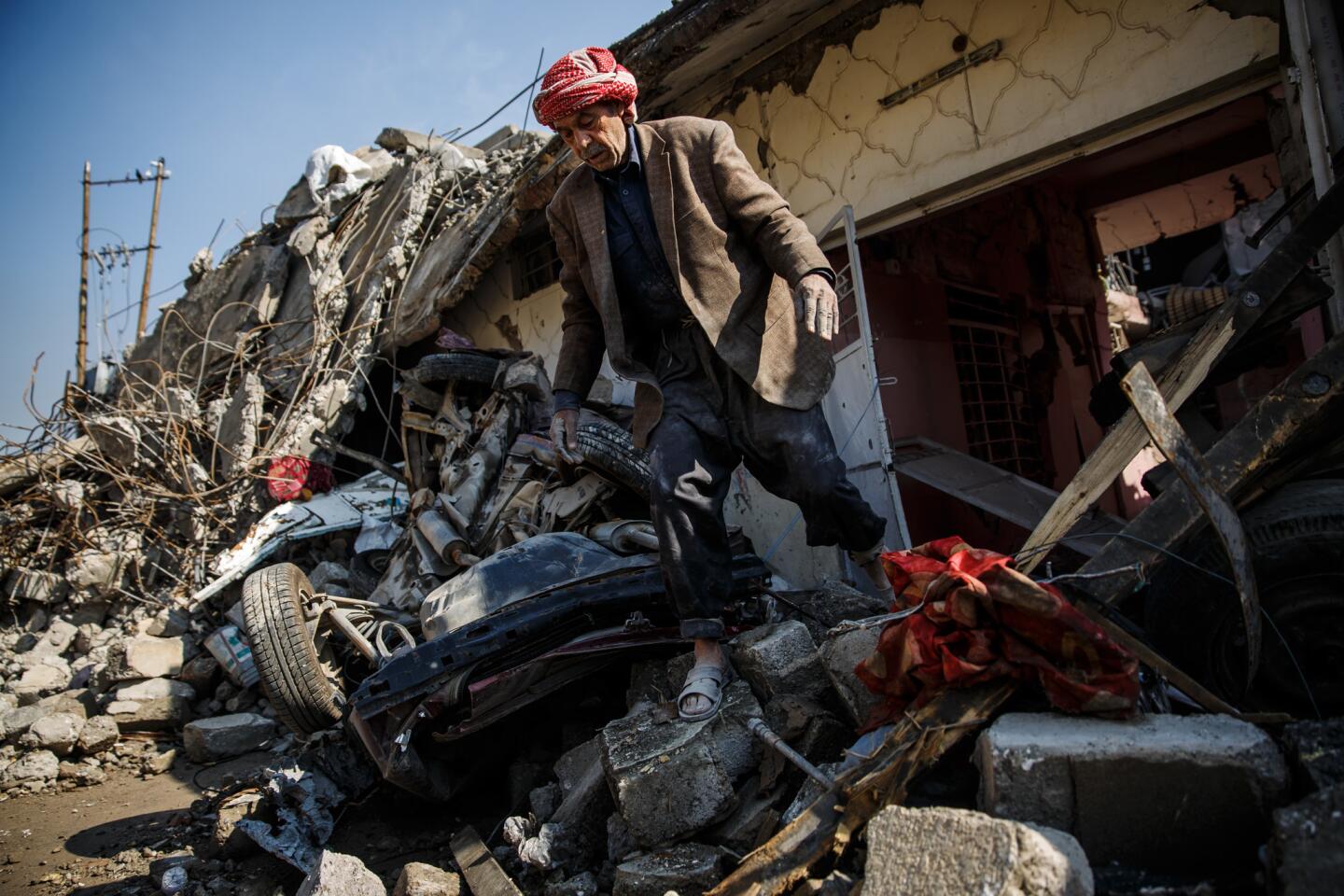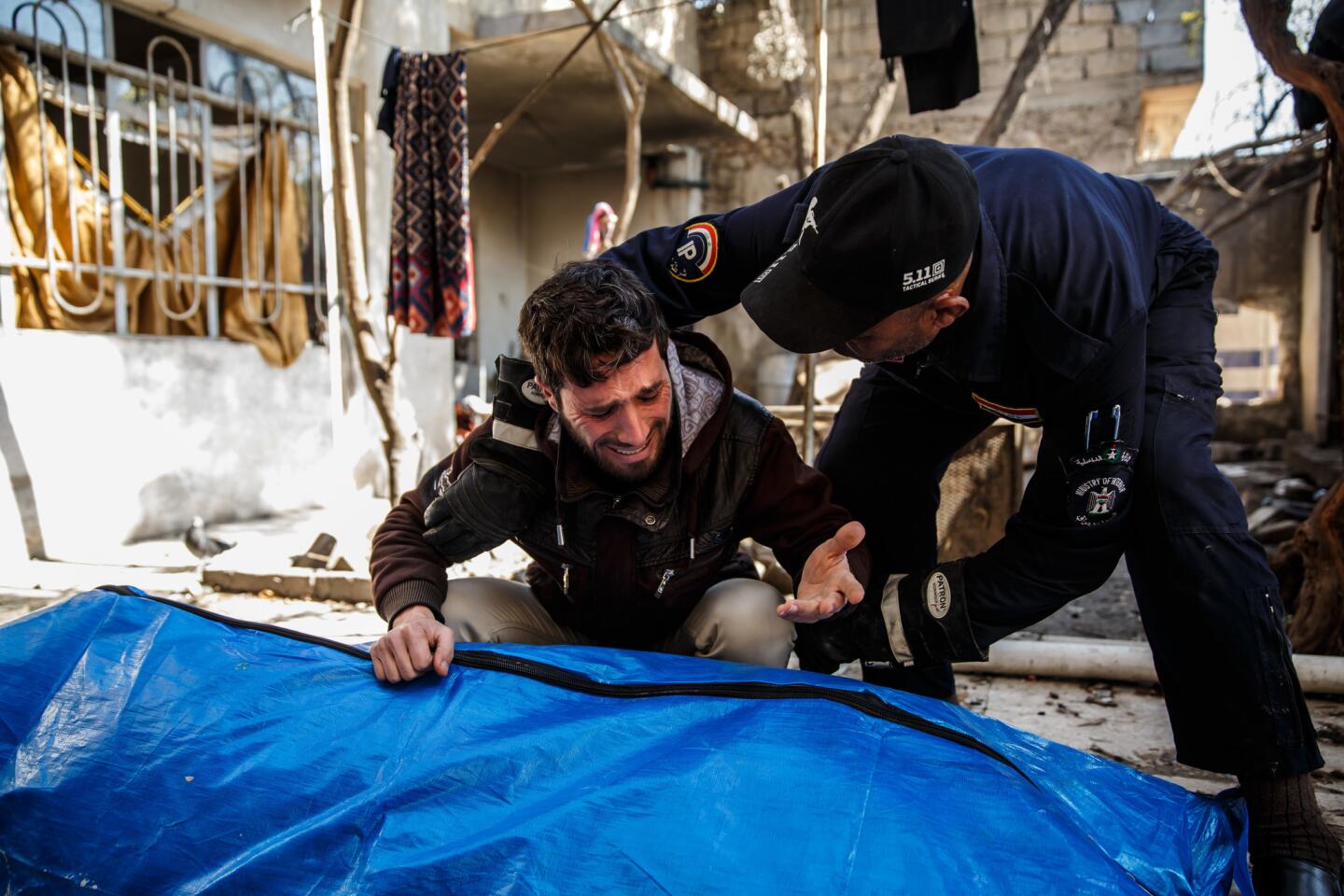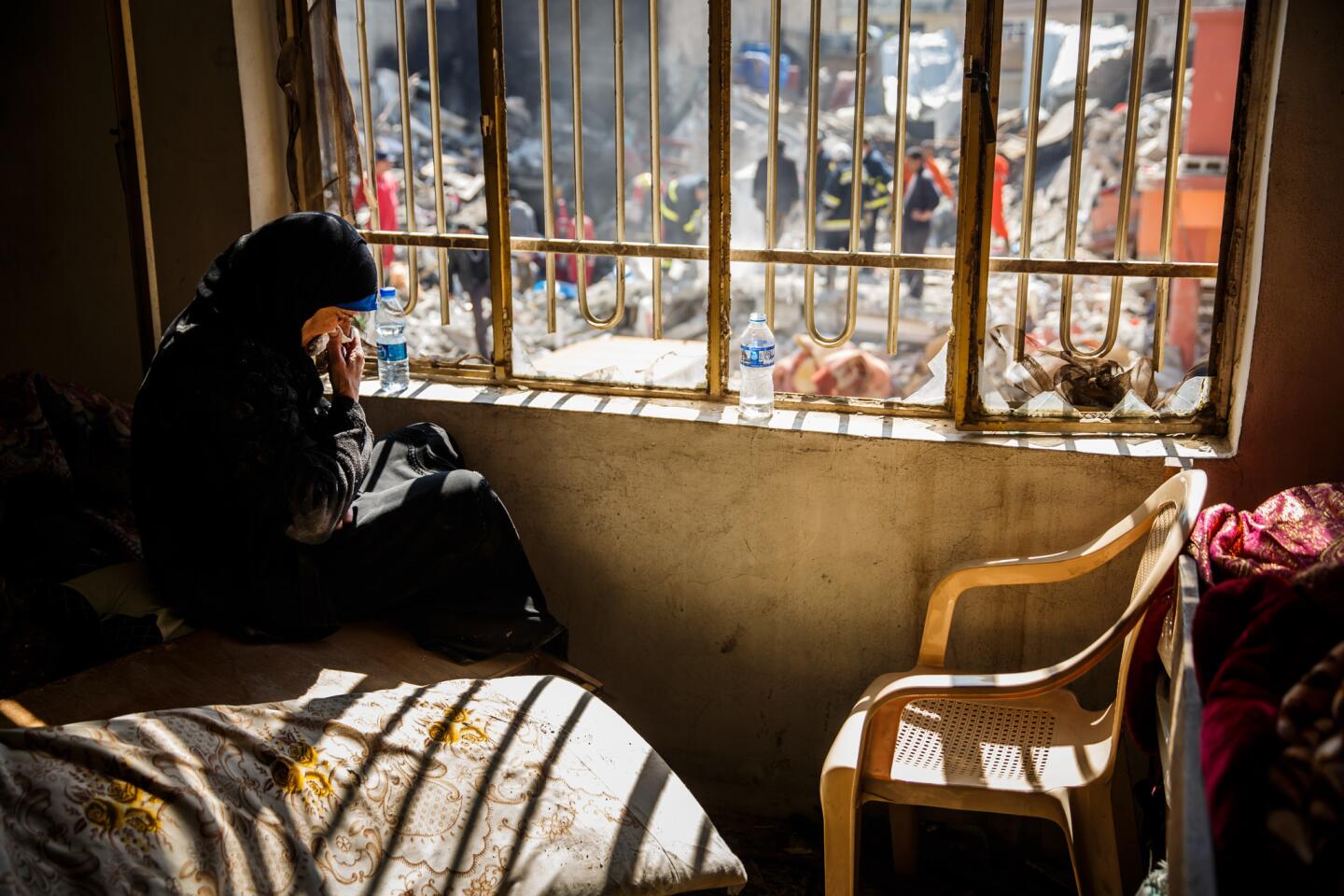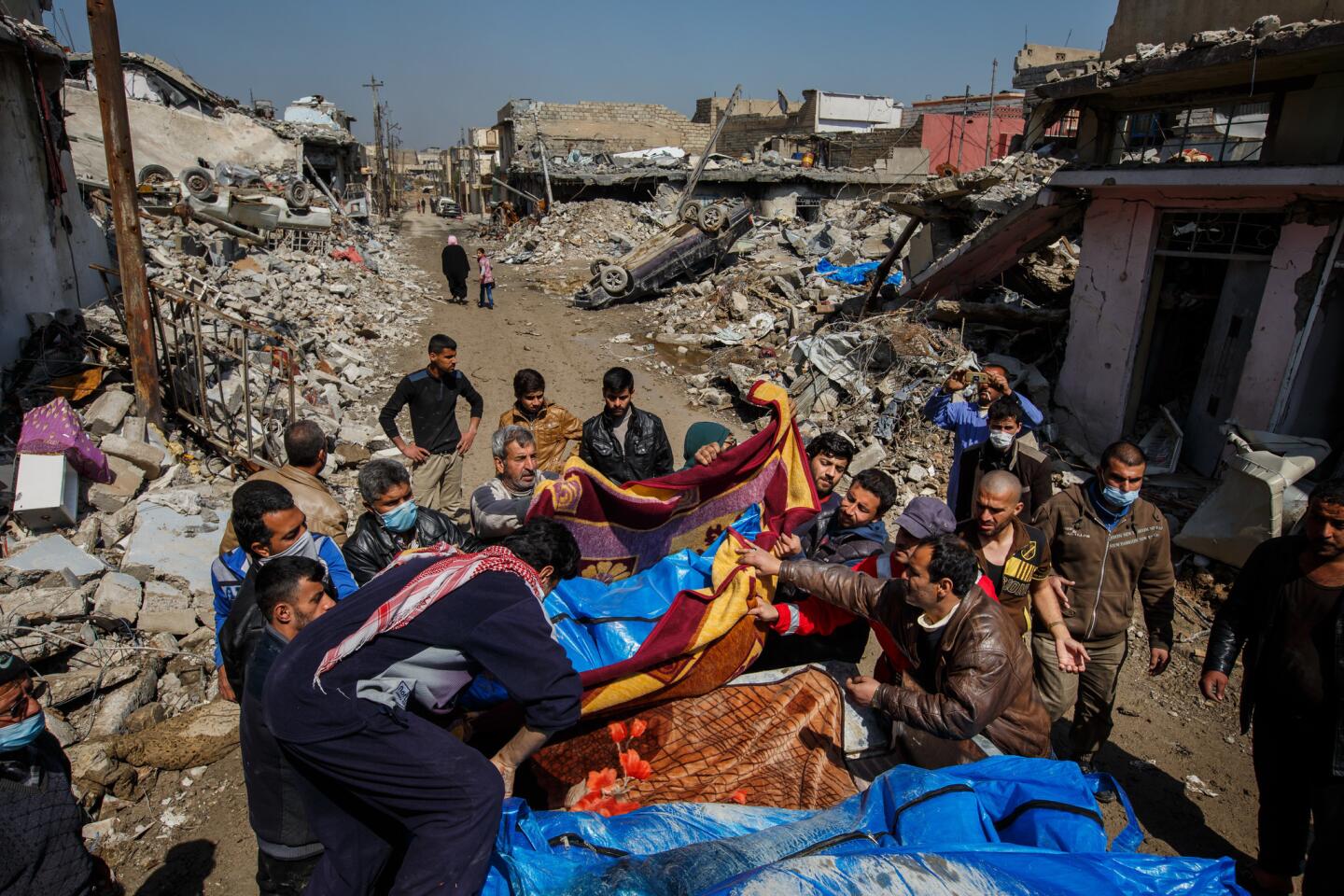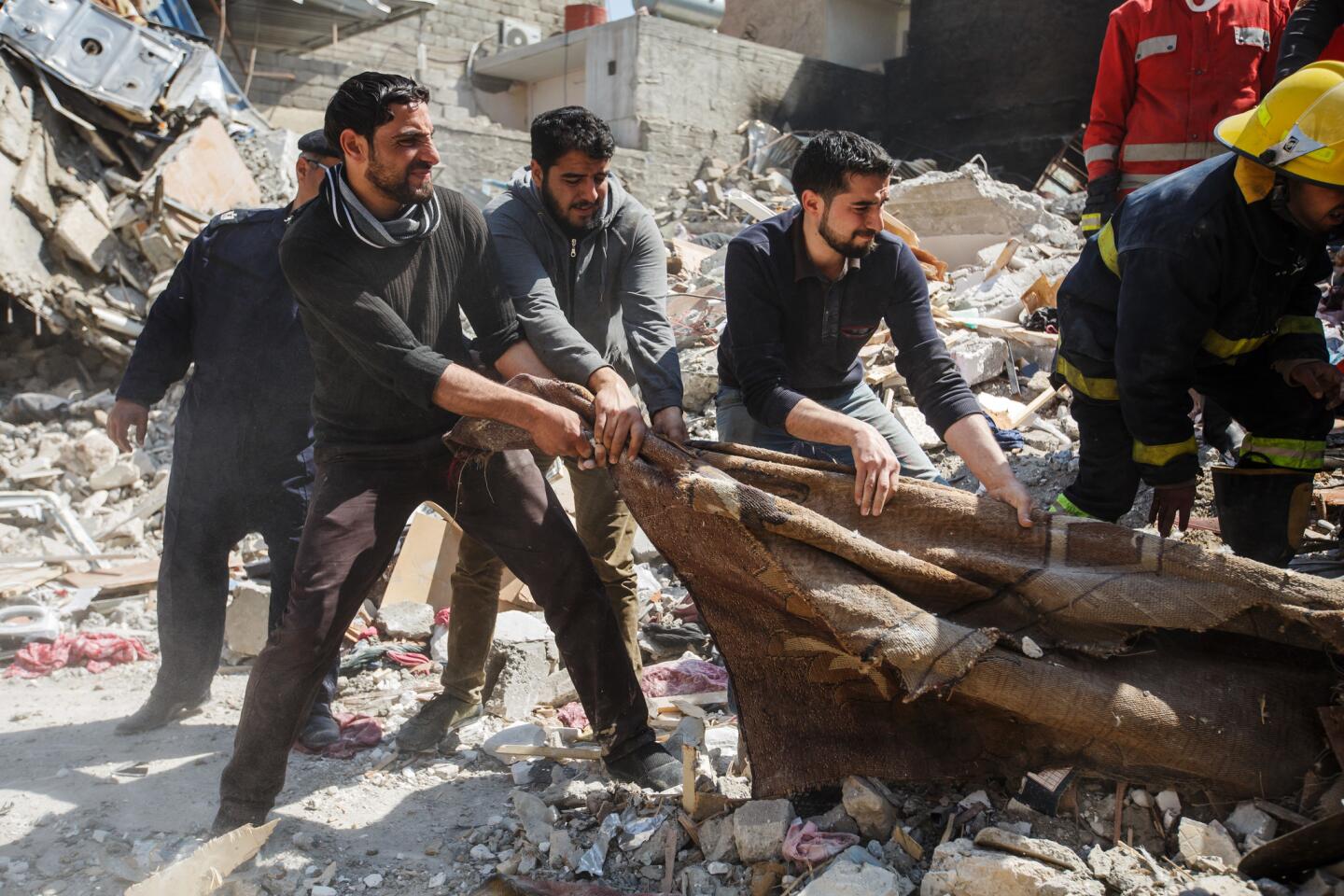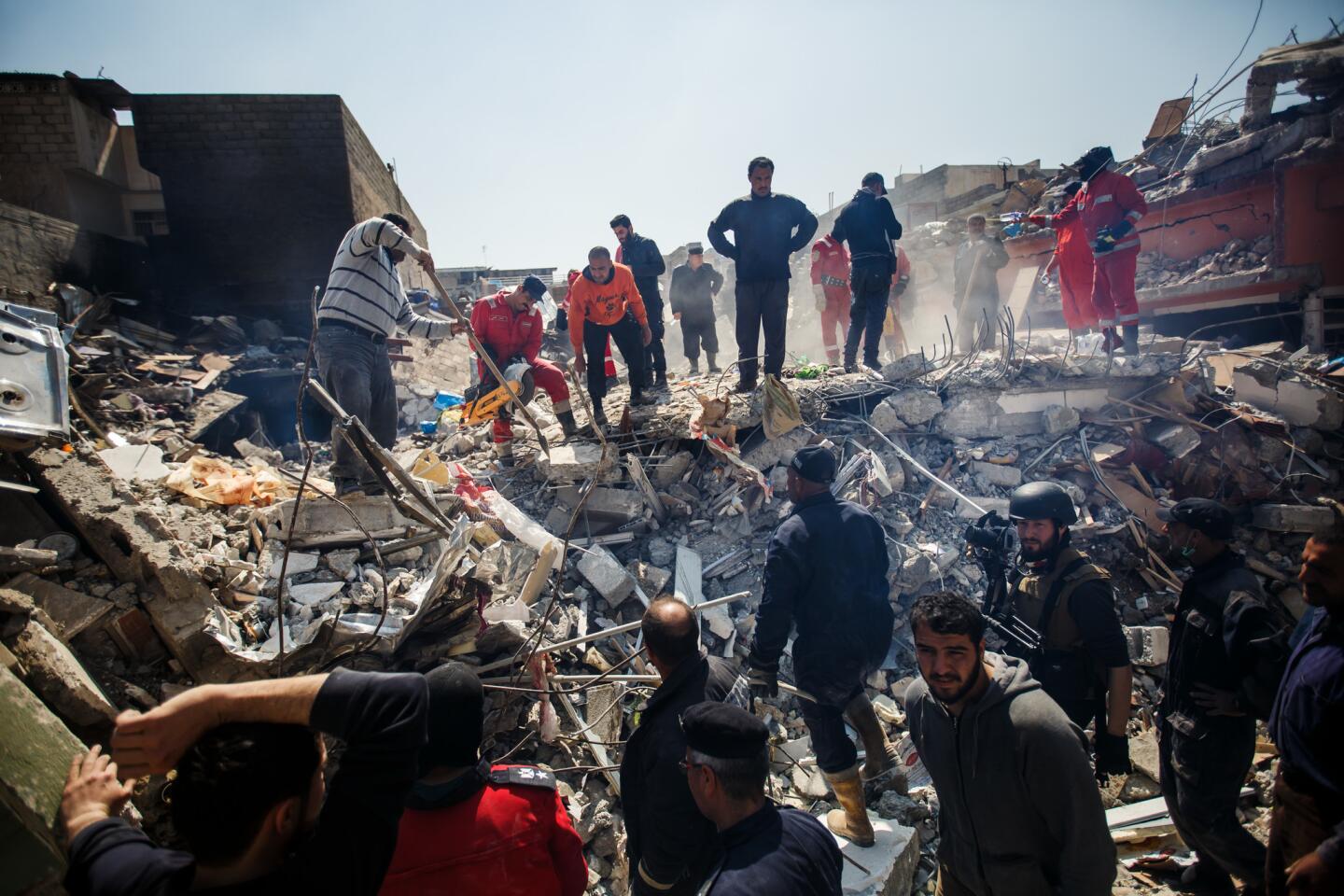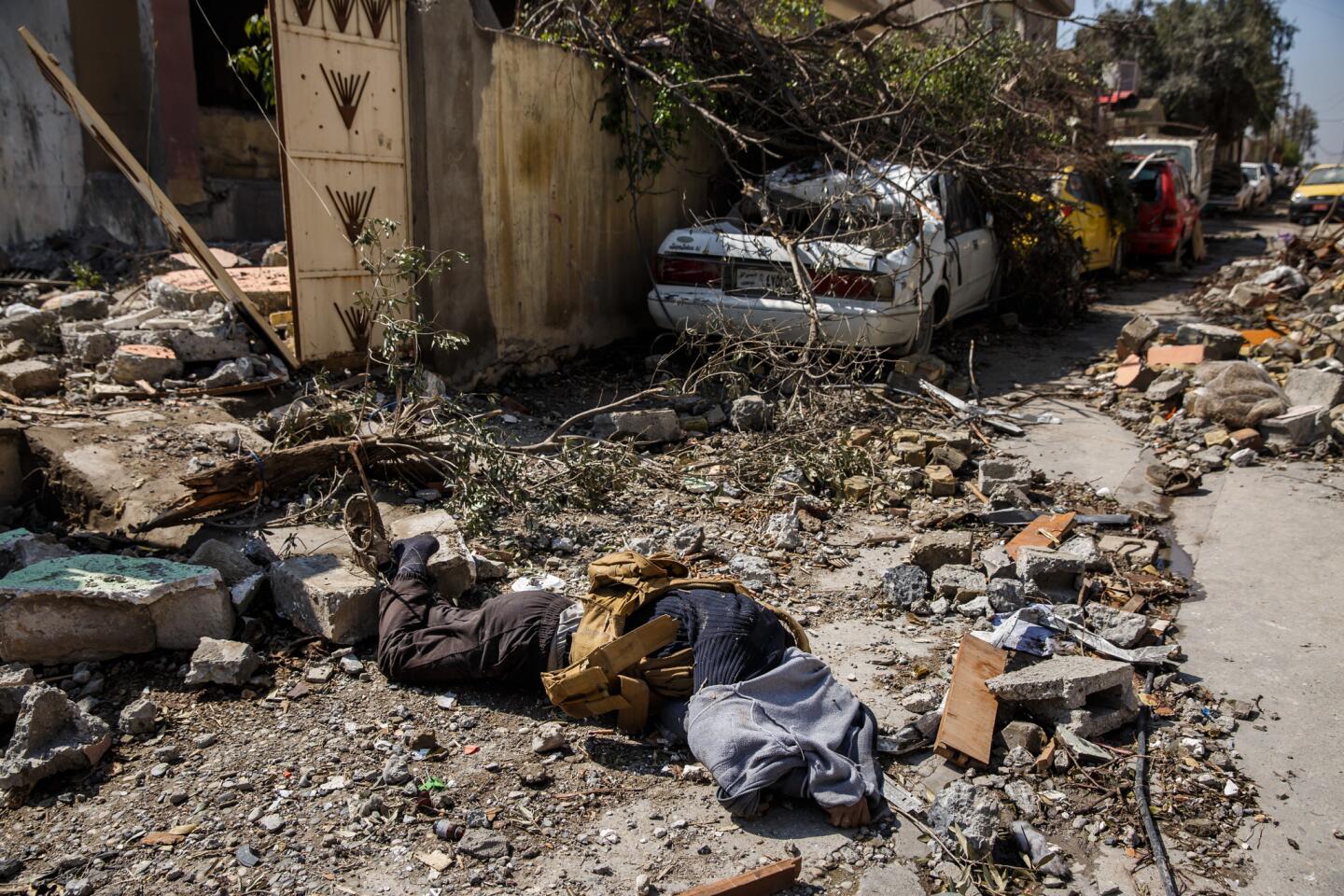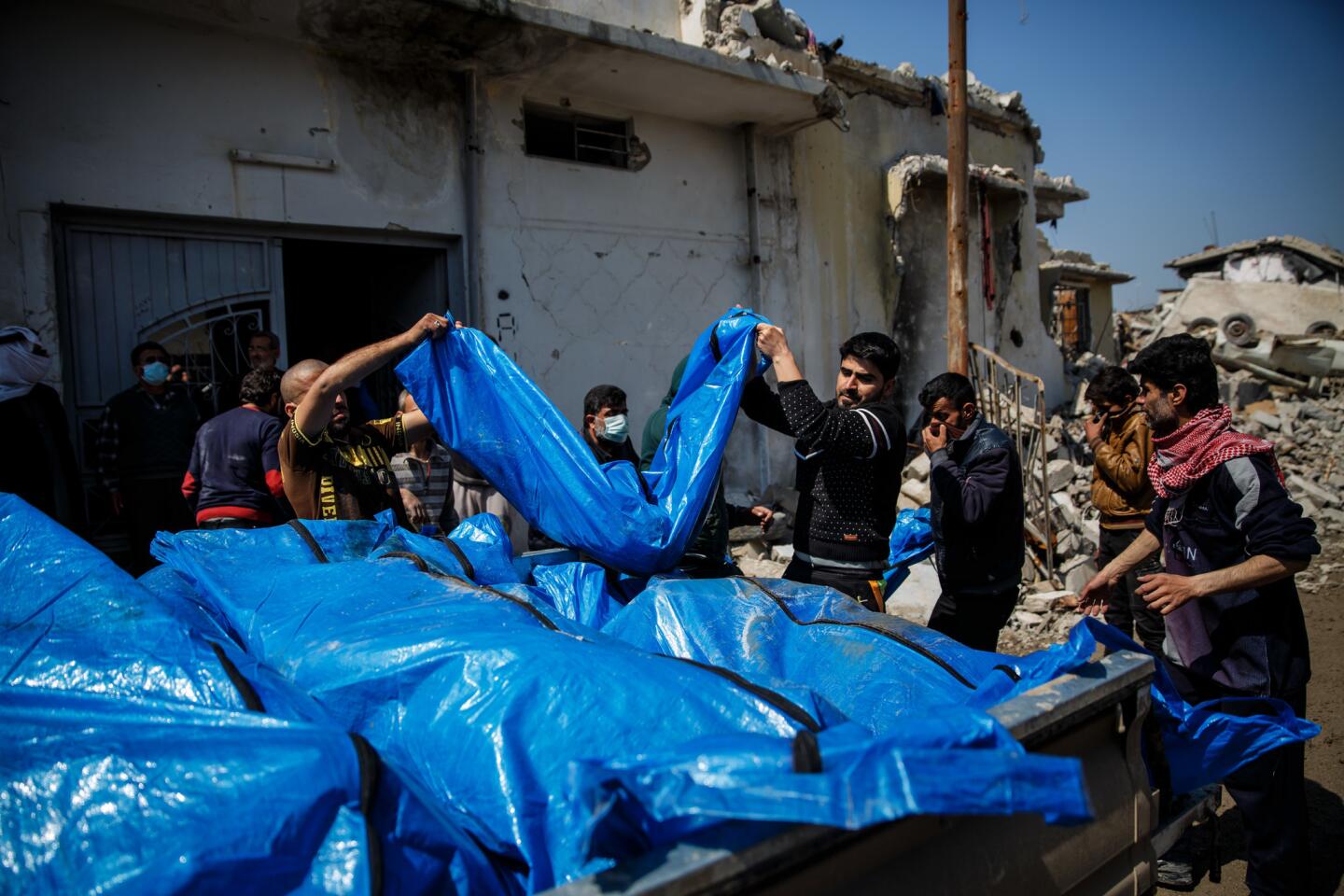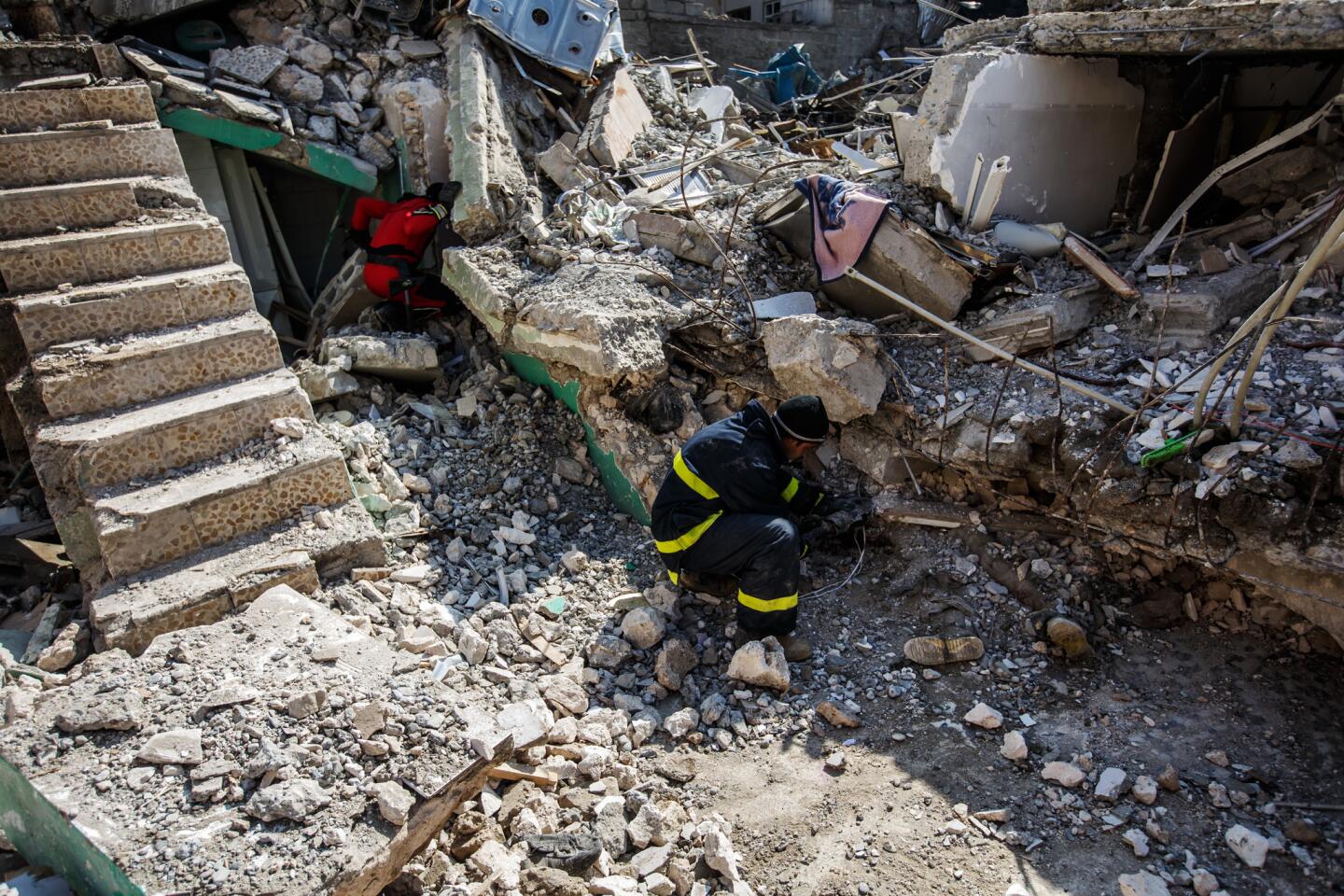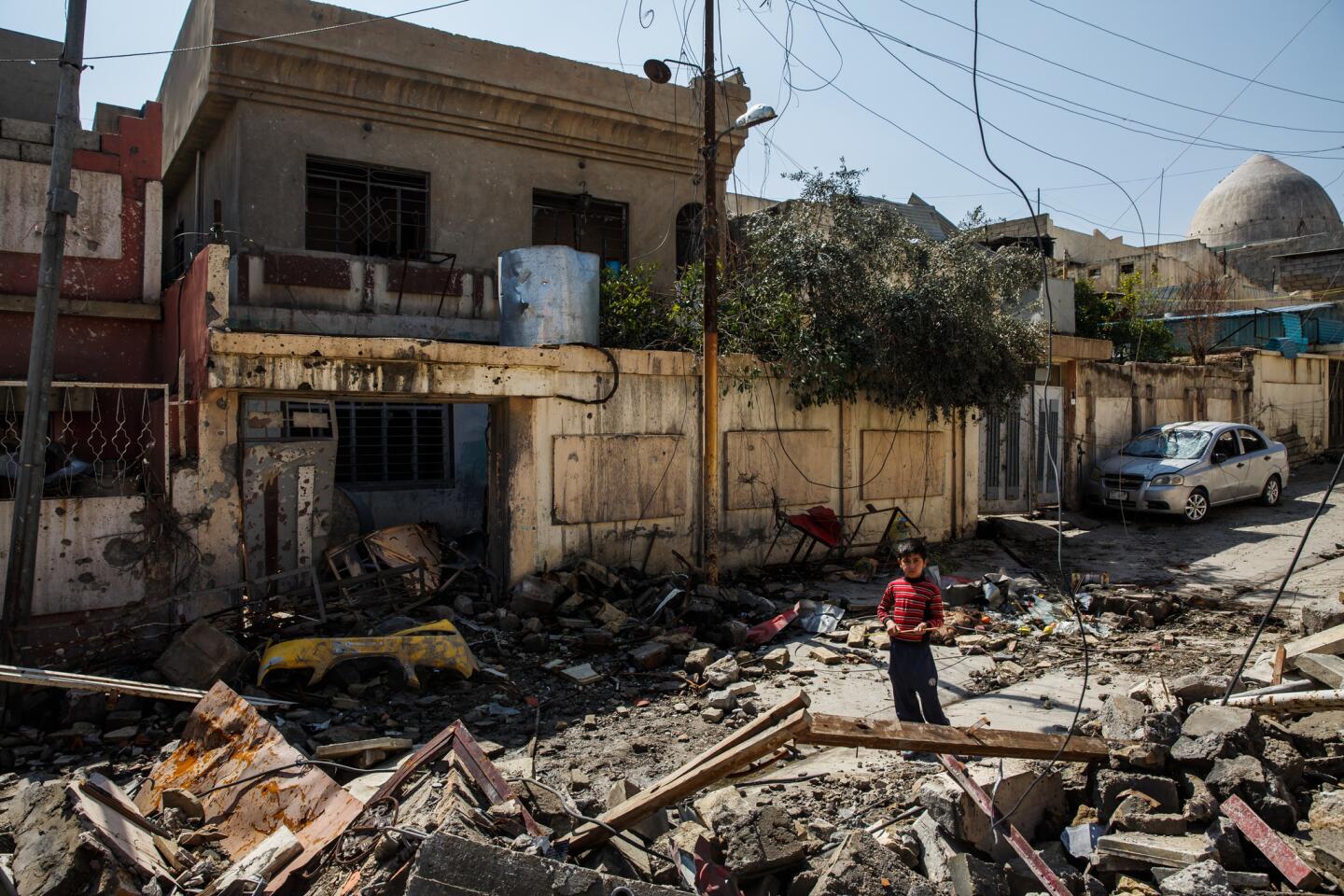Iraqi military denies that an airstrike caused massive civilian casualties in Mosul
- Share via
Reporting from Baghdad — Iraq’s military disputed reports that a U.S.-led coalition airstrike ordered by Iraqi forces killed civilians in west Mosul this month, even though the claims were substantiated by an initial coalition investigation this weekend.
In response to witness reports that an airstrike killed scores of civilians, including women and children, in west Mosul’s Jadidah neighborhood on March 17, the Iraqi military issued a statement Sunday saying that while a strike had been ordered that day, military experts dispatched to a house at the scene found no sign of a strike. Instead, they insisted the house’s walls had been booby-trapped, and a suicide car and detonator found nearby.
Witnesses told them that families had been forced to the basement and the house bombed while others in the area were used by militant snipers and suicide bombers. They recovered 61 bodies.
“All walls were booby-trapped and there is no hole that indicates an airstrike,” the statement said.
They noted that Iraqi forces rescued 25 women and children from a similarly booby-trapped house and that late Saturday, militants attacked Iraqi troops again in the same area by exploding a tank.
“Our forces are still engaged in fierce battles and sacrifices to liberate our people,” the statement said.
The statement came as some Iraqi officials called for an independent, international investigation into the airstrike. It also contradicted accounts from Iraqi officials at the scene Friday and witnesses who claimed militants used them as human shields.
Iraqi Civil Defense Lt. Col. Taha Ali said the airstrikes came after militants began shooting at aircraft with “heavy rockets.”
“Everything was from an airstrike,” he said at the scene Friday.
West Mosul residents have been complaining for weeks of civilian deaths and injuries caused by airstrikes in other neighborhoods.
Mohammed Mahmoud Suleiman, also with civil defense, estimated that at least 200 people had been killed in the latest strike.
“We have bodies under the concrete because of an aircraft, an airstrike,” Suleiman said at the scene Friday.
“You can see all the destruction,” he added, pointing to several blue body bags, one of which was unzipped to reveal the body of a young boy in a blue sweatshirt. Another contained a pregnant woman wearing a dark head scarf. Residents said one of the victims was just 20 days old.
The destruction was not isolated: Several homes on the street had been razed. At one house, neighbors — including relatives of those killed — said 130 people had died in that home alone.
“The area has been destroyed,” witness Ihab Adnan, 35, said at the scene Friday, insisting that the strike should be investigated and families like his who had lost several loved ones compensated so that they can rebuild.
“We want to be paid and for people to know what happened to us,” he said as he walked among body bags containing his relatives’ remains, including children.
Munatha Jasim, 52, lost her 7-year-old son and 4-year-old daughter in the strike. Standing beside the remains of her home, she said she was still waiting to recover the rest of her children’s bodies.
“Their heads are there,” she said. “We just want to take the bodies out, more than anything.”
At least 50 bodies could be seen at the site Friday, and Iraqi civil defense workers recovering remains said they had found more than 80. The World Health Organization confirmed at least 100 deaths, while witnesses and neighbors claimed hundreds of bodies remained beneath the rubble.
The death of innocent civilians in Mosul is a terrible tragedy. We are investigating the incident to determine exactly what happened.
— Gen. Joseph Votel, military commander for U.S. Central Command
Witnesses said they saw militants park a suicide truck on the street days before, then a sniper set up on top of a house, shooting at aircraft which responded with the strike.
Lise Grande, the United Nations humanitarian coordinator for Iraq, said the U.N. was “stunned” by the loss of life and that “everything must be done to avoid civilian casualties.”
“Parties to the conflict — all parties — are obliged to do everything possible to protect civilians,” Grande said in a statement. “This means that combatants cannot use people as human shields and cannot imperil lives through indiscriminate use of fire-power.”
If the deaths are found to have been the result of an airstrike, it would be one of the deadliest coalition attacks on civilians in recent history.
“The death of innocent civilians in Mosul is a terrible tragedy,” Gen. Joseph Votel, military commander for U.S. Central Command, which oversees operations in the Middle East, said in a statement. “We are investigating the incident to determine exactly what happened and will continue to take extraordinary measures to avoid harming civilians.”
Soldiers with the U.S. Army’s 82nd Airborne Division have been ordered to Iraq to help Iraqi forces dislodge Islamic State militants in their final holds in Mosul. A “relatively small number” of the troops will assist Iraqis, who are facing mounting resistance in the densely populated city, according to a U.S. official, who wasn’t authorized to speak publicly about the decision.
The fact that the U.S.-led coalition has yet to determine whether it was at fault for leveling a city block, an incident that killed so many people, underscores the number of weapons dropping in Mosul as the bombing campaign ramps up.
Hundreds of artillery shells, ground-based rockets and precision-guided bombs strike targets around the densely populated city each week, raising questions about whether the Trump administration has relaxed the written rules of engagement in the more than 2-year-old war against Islamic State.
Civilian casualty claims from U.S.-led coalition airstrikes have increased in both Iraq and Syria.
Col. John Thomas, spokesman for Central Command, said the rules of engagement have not been changed and the military maintains tight restrictions to ensure that civilians are not inadvertently injured or killed.
The U.S.-led coalition and its ground partners in Iraq and Syria are closing in on Islamic State’s last strongholds, where the militants mix among the locals in heavily populated areas. This is a departure from the early phases of the campaign when the militants were driving through the desert flying black flags, making themselves easy targets.
“Iraq’s security forces are making measurable progress, the fight in Mosul is a difficult one, and particularly because the enemy operates amongst the civilian population. While I am confident ISIS will be defeated, there is tough fighting still ahead and we will continue to prioritize the protection of the people of Iraq in the conduct of all operations,” said Votel, using an acronym for Islamic State.
Times staff writer Hennessy-Fiske reported from Baghdad and Hennigan from Washington.
molly.hennessy-fiske@latimes.com
ALSO
U.S. military denies airstrike hit mosque in Syria, following reports of dozens killed
Bone by bone, Iraqis unearth a mass grave: ‘We will be out there digging until no one is left’
More to Read
Sign up for Essential California
The most important California stories and recommendations in your inbox every morning.
You may occasionally receive promotional content from the Los Angeles Times.
